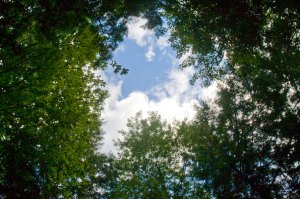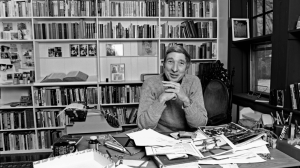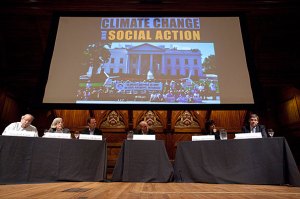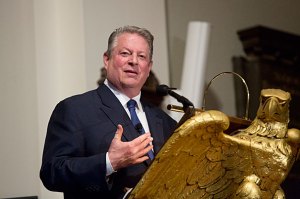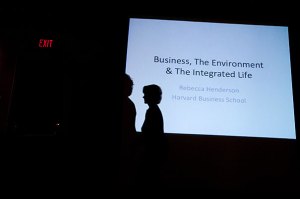Tag: Climate Change
-
Science & Tech
Climate change on world stage
In a question-and-answer session, Professor Robert Stavins discusses the recent international conference on climate change, and the prospects for nations to reach agreement on a plan to confront it.

-
Science & Tech
Corn in a changing climate
Harvard researchers have concluded that omitting the adaptive ability of crops from assessments of potential damages from a warming climate could substantially overestimate losses to U.S. maize yields.
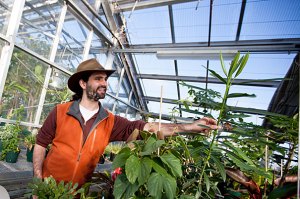
-
Science & Tech
Lessons for the next Sandy
Disaster relief dollars flowing to those affected by hurricanes like Sandy and Katrina represent an important opportunity to ensure that communities are better able to withstand the stronger storms and higher seas likely coming as climate change worsens, panelists said.
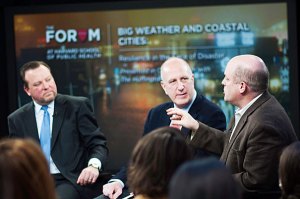
-
Science & Tech
A notion to cool the skies
An international regulatory framework is needed to govern possible research and deployment of engineering approaches to counter climate change, an authority on environmental law says.
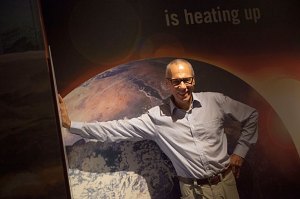
-
Science & Tech
Hello again, climate change
Superstorm Sandy’s hurricane winds and torrential downpours killed at least 106 people, left millions without power, and caused billions of dollars in damage. It also got people talking again about climate change.
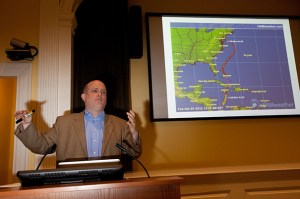
-
Science & Tech
Cautious geohacking
By tailoring geoengineering efforts by region and by need, a new model promises to maximize the effectiveness of solar radiation management while mitigating its potential side effects and risks.
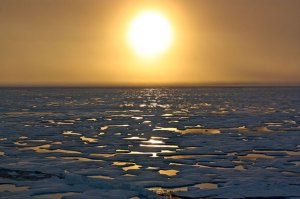
-
Science & Tech
Making a sustained impact
Harvard has released a sustainability impact report that provides a University-wide snapshot of the progress that has been made by students, staff, and faculty to reduce the environmental footprint and increase the operational efficiency of Harvard’s campus.

-
Science & Tech
A close eye on population growth
Joel Cohen, head of the Laboratory of Populations at Rockefeller and Columbia universities, looked at the latest projections for world population growth, and factors that could alter them, in a Harvard talk.
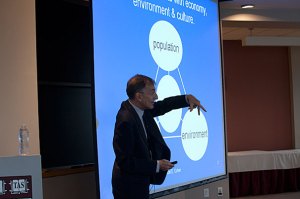
-
Science & Tech
Butterflies heading north
A Harvard study reveals that over the past 19 years, a warming climate has been reshaping Massachusetts butterfly communities.

-
Science & Tech
Using evolution to understand pollution
A tool rarely used to understand the impact of pollution on the natural world is evolution, an oversight that an environmental toxicologist says is robbing investigators of important information.
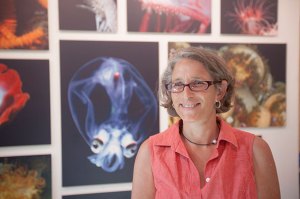
-
Health
The tangled web around spiders
A biologist with an affinity for spiders shared his passion, taking the audience on a tour of arachnids large and small and making a pitch for their conservation as natural pest control.
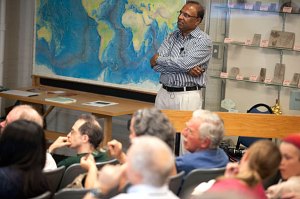
-
Science & Tech
Airborne pollutants lead a double life
Researchers at Harvard University and the University of British Columbia (UBC) have provided visual evidence that atmospheric particles — which are ubiquitous, especially above densely populated areas — separate into distinct chemical compositions during their life cycle.
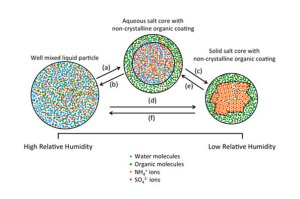
-
Science & Tech
Concerns about climate change, health
A team of researchers led by James G. Anderson, the Philip S. Weld Professor of Atmospheric Chemistry, warns that a newly discovered connection between climate change and depletion of the ozone layer over the U.S. could allow more damaging ultraviolet (UV) radiation to reach the Earth’s surface, leading to increased incidence of skin cancer.
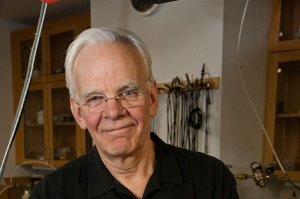
-
Science & Tech
A forest washing into the sea
Harvard researchers probe environmental shifts on Martha’s Vineyard, where they document one wooded area’s recovery from a massive die-off and another’s passage into the ocean.

-
Science & Tech
‘Warming hole’ delayed climate change
Climate scientists at the Harvard School of Engineering and Applied Sciences (SEAS) have discovered that particulate pollution in the late 20th century created a “warming hole” over the eastern United States — that is, a cold patch where the effects of global warming were temporarily obscured.

-
Science & Tech
Illuminating carbon’s climate effects
Harvard researchers compiled ice and sedimentary core samples collected from dozens of locations around the world, and found evidence that while changes in Earth’s orbit may have touched off a warming trend, increases in CO2 played a far more important role in pushing the planet out of the ice age.
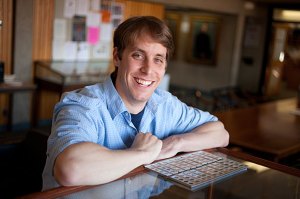
-
Science & Tech
Dangerous heat
New research from the Harvard School of Public Health suggests that seemingly small changes in summer temperature swings may shorten life expectancy for elderly people with chronic medical conditions, and could result in thousands of additional deaths each year.
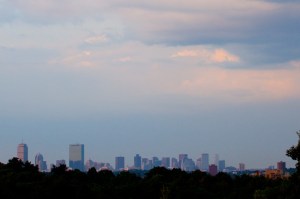
-
Science & Tech
In a drying Amazon, change looms
If the Amazon becomes drier, as predicted by climate models, the forest will see a shift toward tree species that are drought tolerant and, in some cases, will lead to a savannah’s mix of trees and grasses, Robert F. Kennedy Visiting Professor Guillermo Goldstein says.

-
Science & Tech
To help the environment, manufacture
An American manufacturing revival is needed if the United States is to transform its energy mix at the scale necessary to blunt coming climate change, the former chairman of the Sierra Club said in a Harvard University Center for the Environment discussion on the future of energy.
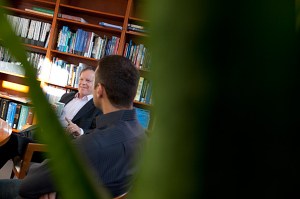
-
Science & Tech
On climate issues, look to states
The head of California’s air pollution regulatory board said Feb. 27 that with climate change action stalled in Washington, D.C., the states are taking the lead in creating ways to reduce carbon emissions.
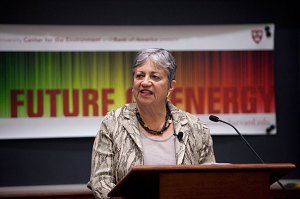
-
Science & Tech
Harvard Thinks Green: Your Role as a Leader of Sustainability Efforts
Professor Robert Kaplan from the Harvard Business School is a professor of Management Policy December 8, 2011
-
Science & Tech
Harvard Thinks Green: Foraging a New Pathway to National Climate Change Legislation
Richard Lazarus from Harvard Law School, is the Howard J. and Katherine W. Aibel Professor of Law December 8, 2011
-
Science & Tech
Harvard Thinks Green: Is It Too Late to Avoid Serious Impacts of Climate Change?
James McCarthy is the Alexander Agassiz Professor of Biological Oceanography and a co-chair with the Nobel Peace Prize winning Intergovernmental Panel on Climate Change December 8, 2011
-
Science & Tech
When plants may not help
Large-scale increases in forest cover in North America and Eurasia — proposed by some analysts as a way to cut climate change — could hurt the environment by shifting rainfall patterns across the globe, Harvard study says.
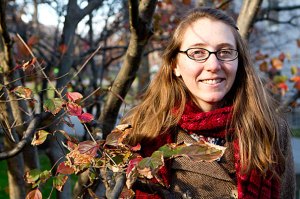
-
Science & Tech
Thinking green, and thinking big
At the first Harvard Thinks Green, six Harvard professors gathered at Sanders Theatre to seek big solutions for complex and potentially intractable problems such as climate change.
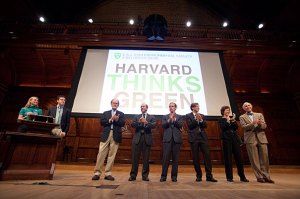
-
Science & Tech
A road map to cleaner energy
A new report by the Harvard Kennedy School’s Belfer Center for Science and International Affairs recommends transforming the U.S. energy picture by nearly doubling funding for U.S. energy technology research and instituting incentives for adopting cleaner technologies, such as a cap-and-trade program for carbon emissions.

-
Science & Tech
Growing strong
Steven Wofsy and Andrew Richardson discuss New England’s still-growing forests and their role as a buffer against the effects of climate change.
